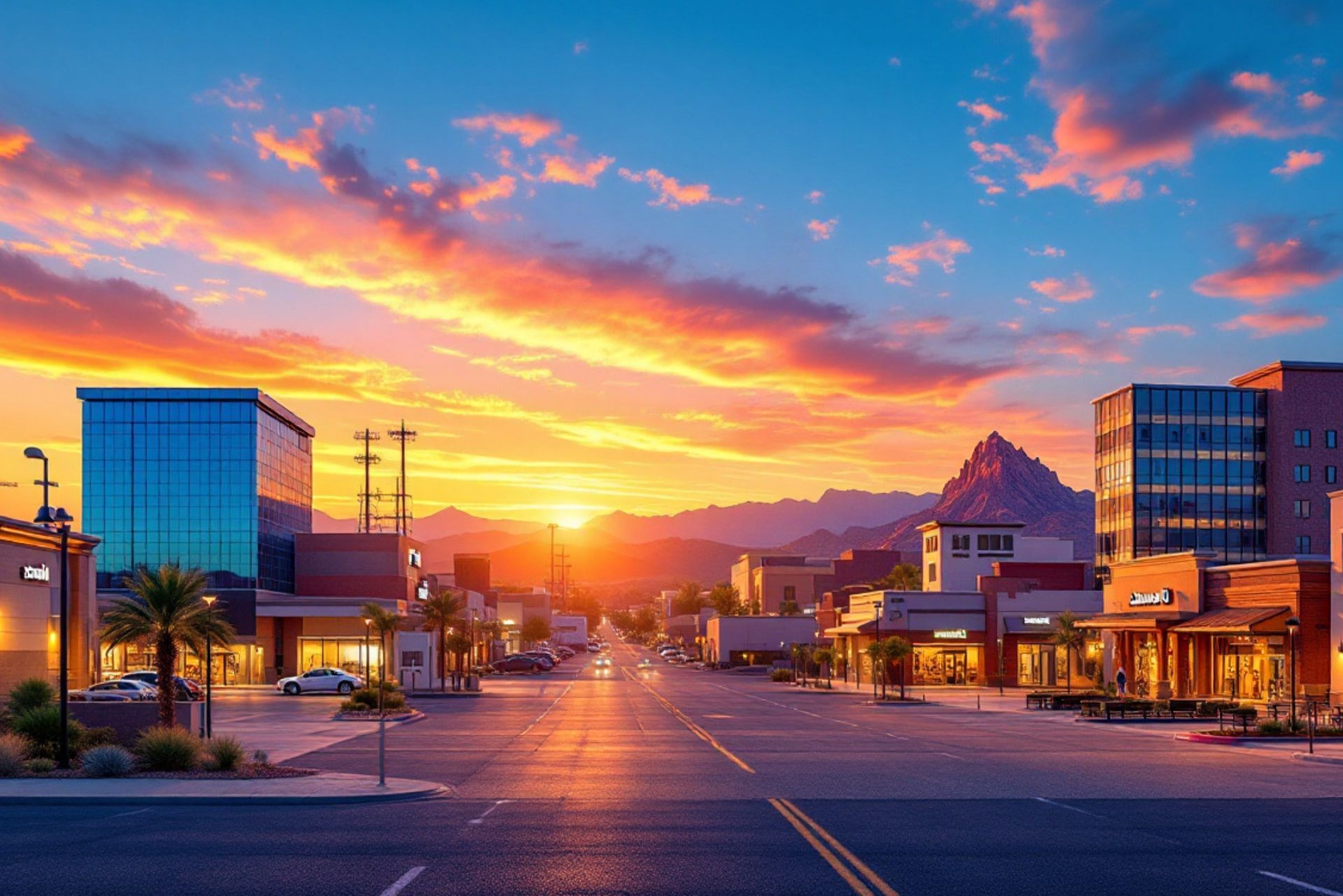Arizona Commercial Property Insurance
See How We're Different:
or Call Us:(480) 526-3222

Most Common Business Policies
Index
Contact Us
Commercial property insurance is an essential component for businesses operating in Arizona. It protects physical assets from various risks, ensuring that companies can recover quickly from unexpected events. This article delves into the intricacies of commercial property insurance in Arizona, covering its importance, types of coverage, factors affecting premiums, and tips for choosing the right policy.
Understanding Commercial Property Insurance
Commercial property insurance is designed to safeguard a business's physical assets, including buildings, equipment, inventory, and furniture. This type of insurance is crucial for any business, whether it operates from a physical location or relies on equipment and inventory stored off-site. In an increasingly unpredictable world, having a safety net for your business assets can mean the difference between recovery and closure in the face of unforeseen events.
What Does Commercial Property Insurance Cover?
Typically, commercial property insurance covers a range of risks, including fire, theft, vandalism, and certain natural disasters. In Arizona, businesses may face unique challenges such as wildfires, floods, and severe storms, making comprehensive coverage vital. It's essential for business owners to thoroughly review their policies to understand the specific perils covered and any exclusions that may apply. For instance, while standard policies may cover damage from fire, they might not include coverage for specific types of flooding unless additional riders are purchased.
In addition to basic coverage, many policies offer options for additional protection. This can include coverage for business interruption, which compensates for lost income during periods when a business cannot operate due to a covered event. Furthermore, some insurers provide options for equipment breakdown coverage, which can be invaluable for businesses that rely heavily on machinery or technology. This additional layer of protection ensures that even if equipment fails unexpectedly, the financial impact on the business can be mitigated.
Why Is It Important for Arizona Businesses?
Arizona's diverse economy, which includes sectors like tourism, agriculture, and technology, means that businesses face various risks. The state's susceptibility to natural disasters, such as wildfires and monsoons, underscores the importance of having robust commercial property insurance. Without adequate coverage, businesses may struggle to recover from significant losses, potentially leading to insolvency. Additionally, the rapid growth of urban areas in Arizona can increase the likelihood of property damage due to construction and development activities, making it even more critical for businesses to protect their assets.
Moreover, having commercial property insurance can enhance a business's credibility. Clients and partners often prefer to work with insured businesses, as it demonstrates a commitment to protecting assets and managing risks responsibly. This can be particularly important in industries where trust and reliability are paramount. Furthermore, many contracts and agreements require proof of insurance, making it a necessary component for businesses looking to expand their operations or enter into new partnerships. By investing in comprehensive commercial property insurance, businesses not only protect their physical assets but also position themselves as trustworthy players in their respective markets.

Types of Coverage Available
Commercial property insurance policies can vary significantly, and understanding the different types of coverage available is crucial for business owners. Here are some common types of coverage that Arizona businesses should consider.
Building Coverage
Building coverage protects the physical structure of a business's premises. This includes the main building, any additional structures, and any improvements or renovations made to the property. In Arizona, where extreme weather can cause damage, having adequate building coverage is essential for safeguarding investments. Moreover, it's important to note that building coverage can also include protection against specific risks such as fire, vandalism, and natural disasters, which can be particularly relevant in areas prone to wildfires or monsoons. Business owners should regularly assess their coverage limits to ensure they reflect current market values and any recent renovations or expansions.
Contents Coverage
Contents coverage extends protection to the items within a business, such as furniture, equipment, and inventory. This type of coverage is vital for businesses that rely heavily on physical goods, ensuring that they can quickly replace lost or damaged items without incurring significant financial strain. Additionally, contents coverage can often be tailored to include specialized items, such as electronic equipment or unique inventory, which may require higher limits due to their value. Business owners should keep an updated inventory list and regularly review their policy to ensure that all contents are adequately covered, especially during peak seasons when inventory levels may fluctuate significantly.
Business Interruption Insurance
Business interruption insurance is a crucial component of a comprehensive commercial property policy. It provides compensation for lost income during periods when a business cannot operate due to a covered event. For example, if a fire damages a store, business interruption insurance can help cover expenses like rent and payroll while the business is closed for repairs. This type of coverage can also include additional expenses incurred while operating from a temporary location, which can be a lifesaver for businesses facing unexpected disruptions. Furthermore, business interruption insurance often considers the historical revenue of the business, allowing for a more accurate assessment of potential losses, and thus ensuring that business owners can maintain their operations and employee salaries even in challenging times.
The cost of commercial property insurance can vary widely based on several factors. Understanding these elements can help businesses make informed decisions about their coverage and budget accordingly.
Location
The geographical location of a business plays a significant role in determining insurance premiums. In Arizona, businesses in areas prone to natural disasters, such as wildfires or flooding, may face higher premiums due to the increased risk of loss. Additionally, urban areas with higher crime rates may also see elevated premiums as the likelihood of theft or vandalism increases. Insurers often analyze local crime statistics and historical data on natural disasters to assess risk levels, which can lead to substantial differences in insurance costs between neighboring regions.
Type of Business
The nature of a business also influences insurance costs. For instance, a manufacturing facility may have different risks compared to a retail store, leading to variations in coverage needs and premiums. Insurers will assess the specific risks associated with each type of business when calculating rates. Furthermore, specialized industries, such as healthcare or technology, may require tailored coverage options that can further impact premium costs. For example, a medical practice might need additional liability coverage to protect against malpractice claims, while a tech startup may need coverage for data breaches, both of which can lead to higher premiums compared to more traditional business models.
Claims History
A business's claims history can significantly impact its insurance premiums. Companies with a history of frequent claims may face higher rates, as insurers view them as higher-risk clients. Conversely, businesses with a clean claims record may benefit from lower premiums. It's also worth noting that the nature of past claims can influence future rates; for instance, a business that has experienced multiple fire-related claims may be scrutinized more closely than one with claims unrelated to property damage. Insurers often encourage businesses to implement risk management strategies to mitigate potential hazards, which can not only help in reducing the likelihood of future claims but also lead to discounts on premiums for proactive risk management efforts.
Choosing the Right Policy
Selecting the appropriate commercial property insurance policy is crucial for ensuring adequate protection. Here are some tips to help business owners navigate this process.
Assess Your Needs
Before purchasing a policy, it's essential to assess the specific needs of the business. This includes evaluating the value of physical assets, understanding potential risks, and determining the level of coverage required. A thorough assessment can help avoid underinsurance or overinsurance. Additionally, consider the unique aspects of your business operations—such as the location, industry regulations, and any seasonal fluctuations that might affect the value of your property. For instance, a retail store in a flood-prone area may require additional coverage for natural disasters, while a manufacturing facility might need to account for machinery breakdowns and liability associated with production.
Compare Quotes
Obtaining quotes from multiple insurance providers is a vital step in finding the best policy. Comparing coverage options, premiums, and deductibles can help businesses identify the most suitable insurance for their needs. It's also wise to read reviews and seek recommendations to gauge the reputation of different insurers. When comparing quotes, pay attention not only to the cost but also to the specifics of what each policy covers. Some policies may include additional benefits, such as business interruption coverage or protection against cyber threats, which can be invaluable in today's digital landscape. Taking the time to understand these nuances can lead to more informed decisions that align with your business's risk profile.
Consult with an Insurance Agent
Working with an experienced
insurance agent can provide valuable insights into the complexities of commercial property insurance. Agents can help businesses navigate policy options, understand coverage limits, and identify potential gaps in protection. Their expertise can be instrumental in securing the right coverage at a competitive price. Furthermore, a knowledgeable agent can assist in tailoring a policy that fits your business's specific needs, ensuring that you are not only compliant with legal requirements but also adequately protected against unforeseen events. They can also provide ongoing support, helping you to adjust your coverage as your business grows or changes, which is vital in maintaining optimal protection over time.

Common Exclusions in Commercial Property Insurance
While commercial property insurance provides essential coverage, it often comes with exclusions that business owners should be aware of. Understanding these exclusions can help prevent unpleasant surprises during the claims process.
Natural Disasters
Many commercial property insurance policies exclude coverage for certain natural disasters, such as earthquakes and floods. Businesses located in high-risk areas may need to purchase additional coverage or separate policies to protect against these specific risks. For instance, in regions prone to hurricanes, business owners might consider windstorm coverage, while those in flood-prone areas may need to look into National Flood Insurance Program (NFIP) policies. It's crucial for businesses to assess their geographical risks and consult with insurance professionals to tailor their coverage accordingly.
Wear and Tear
Insurance policies typically do not cover damage resulting from normal wear and tear. This means that routine maintenance and deterioration over time are the responsibility of the business owner. Regular maintenance is crucial to ensure that assets remain in good condition and to avoid potential claims issues. For example, failing to replace a worn-out roof or neglecting to service HVAC systems can lead to significant damage that would not be covered under a standard policy. By establishing a proactive maintenance schedule, business owners can not only extend the life of their property but also reduce the likelihood of facing costly repairs that fall outside their insurance coverage.
Intentional Damage
Intentional damage caused by employees or owners is generally excluded from coverage. Insurers will not pay for losses resulting from vandalism or theft committed by individuals within the organization. Businesses must implement security measures to mitigate the risk of such incidents. This could include installing surveillance cameras, employing security personnel, or conducting regular audits to ensure that assets are accounted for. Additionally, fostering a positive workplace culture can help deter internal theft and vandalism, as employees who feel valued and respected are less likely to engage in destructive behavior.
Tips for Filing a Claim
Filing a claim can be a daunting process, especially during stressful times following a loss. However, understanding the steps involved can make the process smoother and more efficient.
Document Everything
Thorough documentation is crucial when filing a claim. Business owners should take detailed notes, photographs, and videos of the damage. This evidence will support the claim and help insurers assess the extent of the loss. It’s also advisable to keep a log of any conversations with your insurance adjuster, including dates, times, and the content of discussions. This record can be invaluable if any disputes arise later in the claims process.
Notify Your Insurer Promptly
Most insurance policies require prompt notification of a loss. Delaying the reporting of a claim can lead to complications and potential denial of coverage. It's essential to contact the insurance provider as soon as possible to initiate the claims process. Additionally, familiarize yourself with your policy's specific timeframes for reporting claims, as these can vary significantly between providers. Being proactive in this step can prevent unnecessary delays and ensure that you remain compliant with your policy’s requirements.
Follow Up Regularly
After filing a claim, business owners should maintain regular communication with their insurer. Following up can help ensure that the claim is processed efficiently and that any additional information requested by the insurer is provided promptly. It's also beneficial to ask for updates on the status of your claim during these follow-ups. Understanding the timeline and any potential hurdles can help you manage your expectations and plan accordingly. Furthermore, if you encounter any issues or feel that your claim is not being handled appropriately, don't hesitate to escalate the matter to a supervisor or a claims manager within the insurance company.
Understand Your Policy
Before filing a claim, it's essential to have a clear understanding of your insurance policy. Familiarize yourself with the coverage limits, deductibles, and any exclusions that may apply. This knowledge not only helps in preparing your claim but also in setting realistic expectations regarding the compensation you may receive. Additionally, consider reviewing your policy with an insurance agent or a legal advisor to clarify any confusing terms or conditions. This proactive approach can empower you and ensure that you are fully prepared to navigate the claims process effectively.
Conclusion
Arizona commercial property insurance is a vital aspect of protecting a business's physical assets and ensuring its long-term viability. By understanding the types of coverage available, the factors affecting premiums, and the importance of thorough documentation, business owners can make informed decisions that safeguard their investments.
Ultimately, investing in the right commercial property insurance policy is not just a financial decision; it's a strategic move that can provide peace of mind and security in an unpredictable world. As Arizona continues to grow and evolve, having adequate insurance coverage will remain a cornerstone for businesses striving for success.
